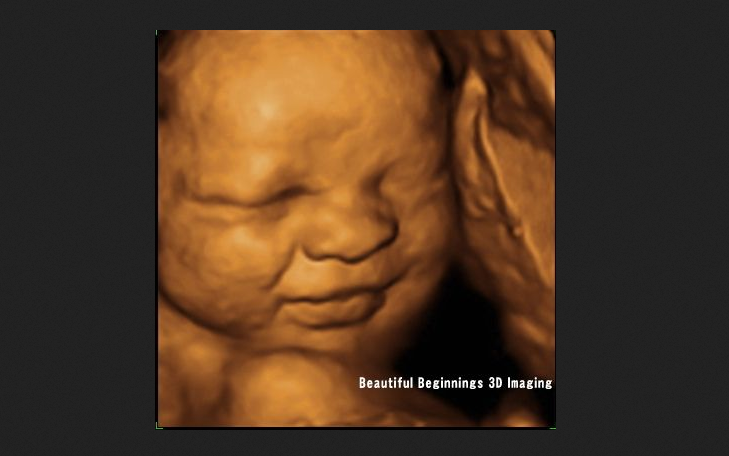Hundreds of thousands of unborn babies are — or very soon will be – protected from abortion in states all across America after the U.S. Supreme Court overturned Roe v. Wade in a momentous ruling Friday.
Estimates vary, but experts predict as many as 26 states will ban abortions now that Roe is no longer in the way.
For nearly 50 years, the infamous abortion ruling forced states to legalize abortions for any reason up to viability and allowed states to legalize abortions without limits up to birth. As a result, more than 63 million unborn babies and hundreds of mothers died in supposedly “safe,” legal abortions.
No more.
On Friday in the case Dobbs v. Jackson Women’s Health, the high court returned the authority to make decisions about abortion to the states. A recent analysis by the Guttmacher Institute predicted that 24 states will keep abortions legal while 26 will ban them.
Get the latest pro-life news and information on Twitter. Follow @LifeNewsHQ
Many states already have taken action to protect unborn babies from abortion in anticipation of the day when Roe will be overturned. The Guttmacher analysis identified 21 states that have laws or constitutional amendments that would ban abortions once the power to do so returns to the states.
These are: Alabama, Arizona, Arkansas, Georgia, Idaho, Iowa, Kentucky, Louisiana, Michigan, Mississippi, Missouri, North Dakota, Ohio, Oklahoma, South Carolina, South Dakota, Tennessee, Texas, Utah, West Virginia and Wisconsin.
Some of these states have pre-Roe laws that prohibit abortions, and others have trigger laws that immediately outlaw the killing of unborn babies in abortions once Roe is overturned. Some also have multiple pro-life laws in place including heartbeat laws and other legislation that limit or ban abortions and go into effect now that Roe is gone.
About an hour after the Supreme Court released its ruling Friday, NPR journalist Sarah McCammon said abortion facilities in several states already were stopping abortions.
“I’m hearing from clinic sources in Louisiana, Kentucky, Texas, Missouri that are halting abortions immediately (can’t speak to ALL clinics in those states, but hearing from some) in response to SCOTUS decision. Also hearing Planned Parenthood has stopped abortions in Arkansas,” McCammon wrote on Twitter. “This is in no way an exhaustive list.”
Earlier this month, Wisconsin Planned Parenthoods also announced plans to stop abortions starting Saturday in anticipation of the decision. Now that the ruling has been released, they may have to stop aborting unborn babies Friday instead.
Five more states are expected to move quickly to protect unborn babies in the coming weeks: Florida, Indiana, Montana, Nebraska and Wyoming, according to the Guttmacher analysis.
Already, Indiana lawmakers have asked Gov. Eric Holcomb, a pro-life Republican, to call a special session to pass pro-life laws in their state as a result of the Supreme Court ruling.
This spring, Florida also passed a law that, although it does not completely ban abortions, protects unborn babies from being killed after 15 weeks. Pro-life leaders say the law will save thousands of babies in the womb from late-term abortions every year.
Altogether, these actions will result in hundreds of thousands of unborn babies being spared from abortion every year across the U.S. Last year, a group of 154 economists and researchers estimated that abortion numbers would drop by about 120,000 in the first year and potentially even more in subsequent years post-Roe.
Other analyses have predicted anywhere from eight to 31 states will limit or ban abortions. In 2018, the pro-abortion group NARAL predicted 13 states would immediately ban abortions. A previous estimate by the Center for Reproductive Rights put the number at 31 states. Another analysis by attorney Paul Linton in the journal “Issues in Law and Medicine” in 2012 estimated between eight and 11 states would ban abortions.
Polls consistently show that a majority of Americans either want abortions to be banned or strictly limited – something Roe did not allow. Under Roe, the U.S. was one of only seven countries in the world that allowed elective abortions after 20 weeks of pregnancy.
Pro-life advocates across the country have been working to increase support services for families in need. Pro-lifers run thousands of pregnancy centers and maternity homes in the U.S., as well as scholarship programs, counseling services, financial aid services and more to help families in need. These programs give families hope, encouragement and the chance to overcome their struggles so that no mother ever feels like she needs to abort her unborn baby to survive.








